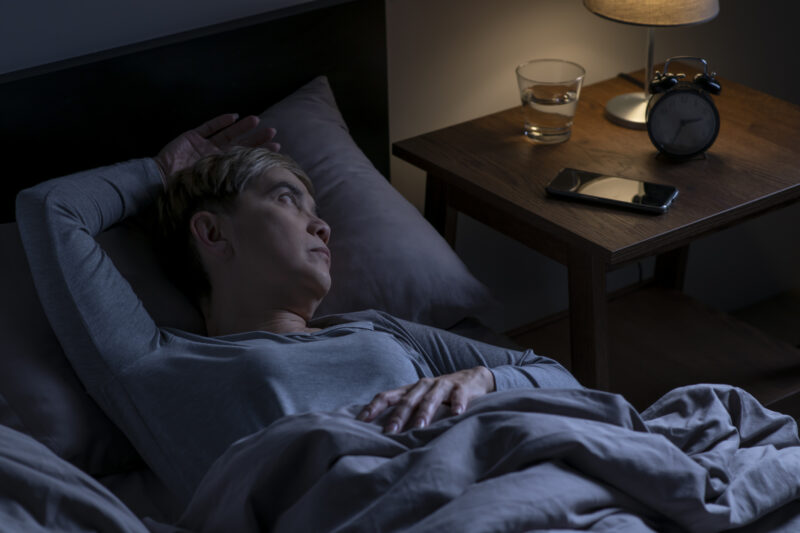
How Do You Fix Memory Loss From Trauma?
4 min.
Memory loss resulting from a traumatic event can take various forms, often interfering with daily life, relationships, and overall mental well-being. Here’s what to do about it.
Memory loss due to a traumatic event can manifest in different ways, often disrupting daily life, relationships, and mental well-being. This is particularly common among people diagnosed with post-traumatic stress disorder (PTSD), one of the most prevalent mental health conditions. For some, memory impairments may be temporary, while for others, they could persist long-term and require ongoing support. Read on to learn more about how therapy, cognitive exercises, and lifestyle adjustments can help fix memory loss from trauma.

If trauma-related memory loss is affecting your daily life, help is available
Explore evidence-based treatments to restore cognitive function and regain control.
Understanding memory loss from trauma
Trauma-related memory loss occurs when the brain suppresses or distorts memories as a coping mechanism. This is often a response to overwhelming stress through a traumatic event, such as childhood abuse, accidents, or military combat. The amygdala, hippocampus, and prefrontal cortex—the brain regions responsible for memory processing—can be affected by high-stress situations, leading to memory gaps or fragmented recall.
Types of trauma-related memory loss
Memory impairment following trauma can vary greatly among individuals. Some people experience temporary forgetfulness, while others may struggle with long-term disruptions. Researchers believe this may be due to structural changes in the brain caused by prolonged stress. Studies suggest that trauma can damage the areas of the brain responsible for memory formation, processing, and retrieval. Additionally, some individuals may unconsciously suppress traumatic memories as a coping mechanism to avoid distress. Here are some common types of trauma-related memory loss:
- Dissociative amnesia, or temporary memory loss due to extreme stress
- Emotional distress due to prolonged exposure to high-stress environments, such as war or childhood abuse, can induce PTSD, creating difficulties in retrieving specific memories
- Trauma to certain parts of the brain due to head injury, concussion, or illness (also known as traumatic brain injury) can induce cognitive impairment, such as amnesia, short-term memory loss, and other memory problems
- In some instances, the subconscious mind blocks traumatic experiences, making them inaccessible to conscious thought, known as repressed memories
How to fix memory loss from trauma and restore cognitive function
Here are some tips for how to fix memory loss from trauma:
1. Engage in therapy
Therapeutic interventions can help process trauma and improve memory function. Common approaches include:
- Cognitive behavioral therapy (CBT): Helps reframe distressing memories and challenge negative thought patterns.
- Eye movement desensitization and reprocessing (EMDR): Utilizes guided eye movements to help reprocess traumatic memories and reduce their emotional impact.
- Exposure therapy: Encourages gradual engagement with traumatic memories in a controlled setting to reduce avoidance behaviors.
- Narrative therapy: Helps individuals reshape their personal stories, integrating traumatic experiences in a way that promotes healing.
- Hypnotherapy: Facilitates access to repressed memories in a safe and controlled environment under professional supervision.
2. Practice mindfulness and meditation
Mindfulness helps increase awareness and concentration, improving memory recall over time. Meditation can reduce stress hormones that impair cognitive function, allowing the brain to heal from trauma-related memory disruptions. Simple mindfulness exercises include:
- Deep breathing techniques (e.g., box breathing, diaphragmatic breathing, etc.)
- Guided meditation apps (e.g., Calm, Headspace, etc.)
- Progressive muscle relaxation
3. Maintain a healthy lifestyle
A well-balanced lifestyle plays a crucial role in brain function and memory restoration. Key aspects include regular exercise, adequate sleep, and proper nutrition.
4. Use memory exercises
Cognitive exercises strengthen neural pathways and help restore lost memories. Effective techniques include journaling, memory games (e.g., crossword puzzles, sudoku, etc.), and storytelling.
5. Create a safe and supportive environment
Trauma can make individuals feel unsafe, which can hinder memory retrieval. Establishing a secure and nurturing space can help the brain relax and access lost information. Ways to achieve this include:
- Surrounding yourself with supportive people
- Reducing exposure to stressors
- Engaging in self-care activities like reading, art, or nature walks
6. Try neurofeedback therapy
Neurofeedback is a cutting-edge technique that trains the brain to function more efficiently. By monitoring brainwave activity, individuals can learn to regulate their cognitive responses, improving memory and focus.
7. Consider medication
In some cases, medication may be needed to manage severe trauma symptoms that contribute to memory loss. Antidepressants, anti-anxiety medications, or cognitive enhancers can be prescribed by a healthcare professional based on individual needs.
How Charlie Health can help
If you or a loved one are struggling with how to fix memory loss from trauma, Charlie Health is here to help. Charlie Health’s Virtual Intensive Outpatient Program (IOP) provides more than once-weekly mental health treatment for dealing with serious mental health conditions, including memory loss from trauma, childhood trauma, and more. Our expert clinicians incorporate evidence-based therapies into individual counseling, family therapy, and group sessions. With treatment, managing memory loss from trauma is possible. Fill out the form below or give us a call to start healing today.

